What is Cartel de los Soles, which the US is labelling as a terrorist organisation?
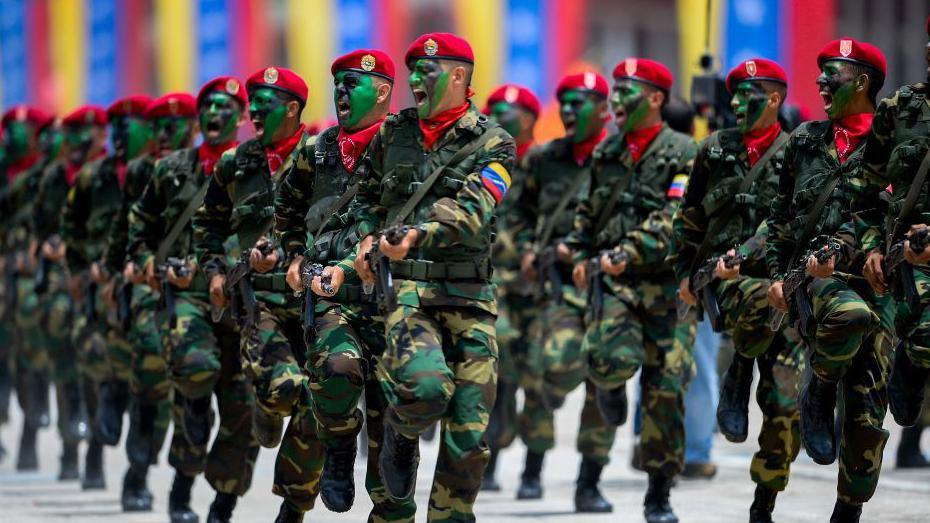
The US says the cartel is led by members of Venezuela's military but Venezuela's government has dismissed the allegations as a 'ridiculous lie'
- Published
The United States has designated the Cartel de los Soles (Spanish for Cartel of the Suns) - a group it alleges is headed by Venezuela's president, Nicolás Maduro, and senior figures in his government - as a foreign terrorist organisation.
Labelling an organisation as a terrorist group gives US law enforcement and military agencies broader powers to target and dismantle it.
In recent months, the US has been ramping up pressure on Maduro, saying his government is illegitimate following last year's election, which was widely dismissed as rigged. The designation gives it another way to turn up the heat.
But questions have been raised as to whether Cartel de los Soles actually exists and Venezuela's foreign ministry has "categorically, firmly, and absolutely rejected" the designation, which it describes as a "new and ridiculous lie".
Not surprisingly, Venezuela's interior and justice minister, Diosdado Cabello, has long called it an "invention".
Cabello, who is alleged to be one of the high-ranking members of the cartel, has accused US officials of using it as an excuse to target those they do not like.
"Whenever someone bothers them, they name them as the head of the Cartel de los Soles," he said in August.
Gustavo Petro, the left-wing president of Venezuela's neighbour, Colombia, has also denied the cartel's existence.
"It is the fictional excuse of the far right to bring down governments that do not obey them," he wrote on X in August.
But the US state department is adamant that the Cartel de los Soles not only exists but that it has "corrupted Venezuela's military, intelligence, legislature, and judiciary".
Experts consulted by the BBC say the truth lies somewhere in between.
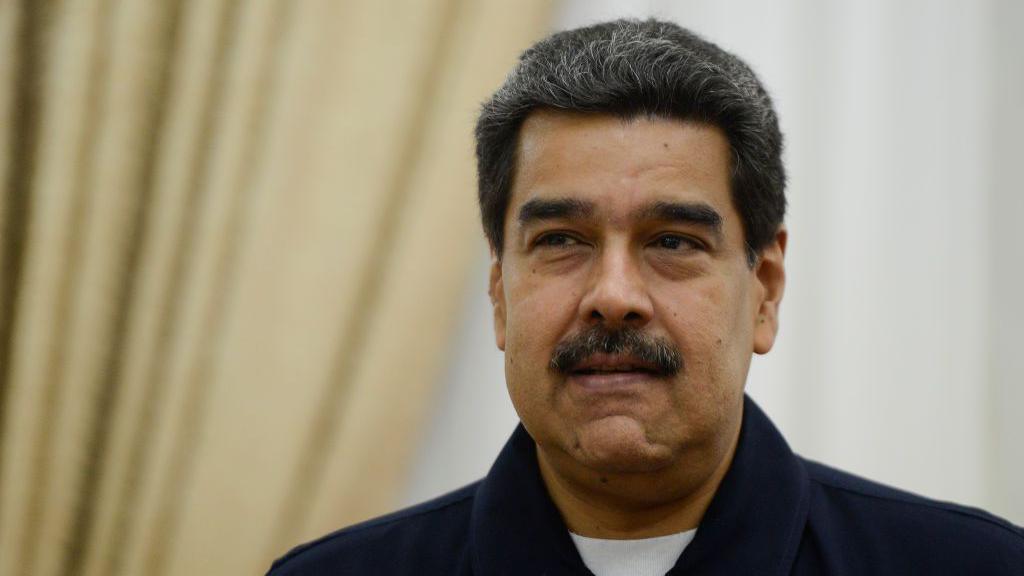
The US government alleges that Nicolás Maduro leads the Cartel de los Soles
The term Cartel de los Soles first emerged in the early 1990s.
It was coined by the Venezuelan media in the wake of drug-trafficking allegations against a general in charge of counter-narcotic operations in Venezuela's National Guard and referred to the sun-shaped insignia worn by generals on their epaulettes to indicate their rank.
Mike LaSusa, an expert in organised crime in the Americas who is deputy content director at Insight Crime, says the moniker soon started to be used for all Venezuelan officials with alleged links to drug trafficking, regardless of whether those officials were part of the same organisation.
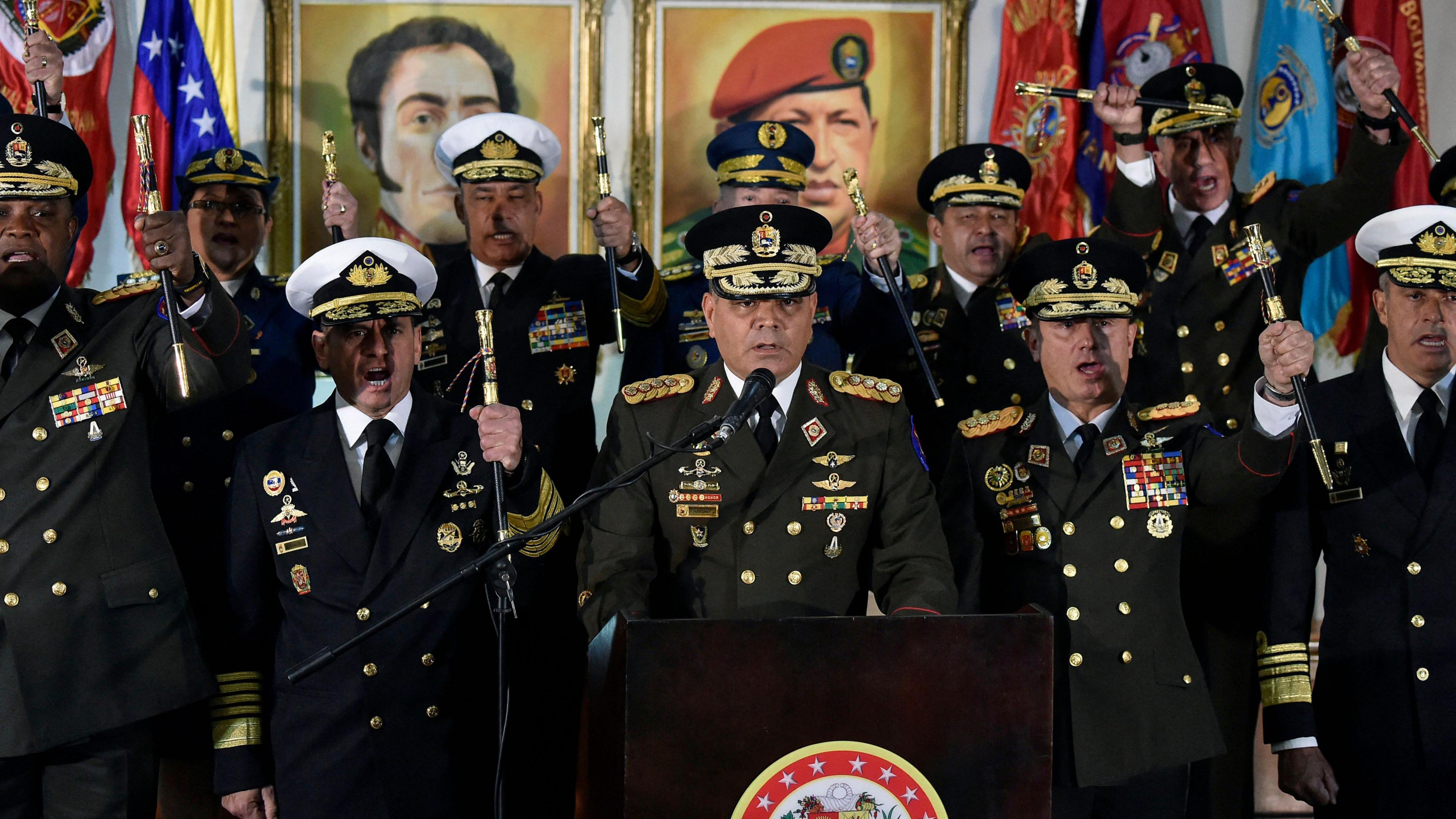
The name "soles" (suns) comes from the sun-shaped insignia worn by Venezuelan generals on their uniforms.
Raúl Benítez-Manau, an organised crime expert from Mexico's UNAM university, says the group's activities started in the late 1980s and early 1990s in response to developments in neighbouring Colombia, the world's largest producer of cocaine.
At the time, the powerful Medellín Cartel, based in the Colombian city of the same name, was being dismantled and a major counter-narcotics offensive in the country was bearing fruit.
As established smuggling routes came under pressure, Mr Benítez-Manau argues, the Cartel de los Soles began providing alternative ways to transport cocaine from Colombia. It then strengthened during the early years of the presidency of Hugo Chávez, the left-wing president who led Venezuela from 1999 to his death in 2013, he says.
"Chávez liked to challenge the United States, and cut all military co-operation ties between the Venezuelan army and the US," he explains.
Without the oversight of the US Drug Enforcement Administration (DEA), "some [Venezuelan] army officers felt free to do business with criminals", Mr Benítez-Manau says.
Chávez's sympathies with Colombia's left-wing Farc guerrillas - which financed themselves largely through cocaine smuggling - were another factor in re-routing some drug trafficking through Venezuela, he says.
Facing military pressure at home, the guerrilla group moved some operations into Venezuela, safe in the knowledge that the Venezuelan president "saw them as leftist ideological allies", Mr Benítez-Manau explains.
Wesley Tabor, a former DEA agent who worked in Venezuela, says the Farc not only found "a safe haven in Venezuela" but also many government officials, "from street-level police to the military aviation", soon became their partners in drug trafficking.
Together, they "began flooding the US with hundreds of tonnes of cocaine", he says.
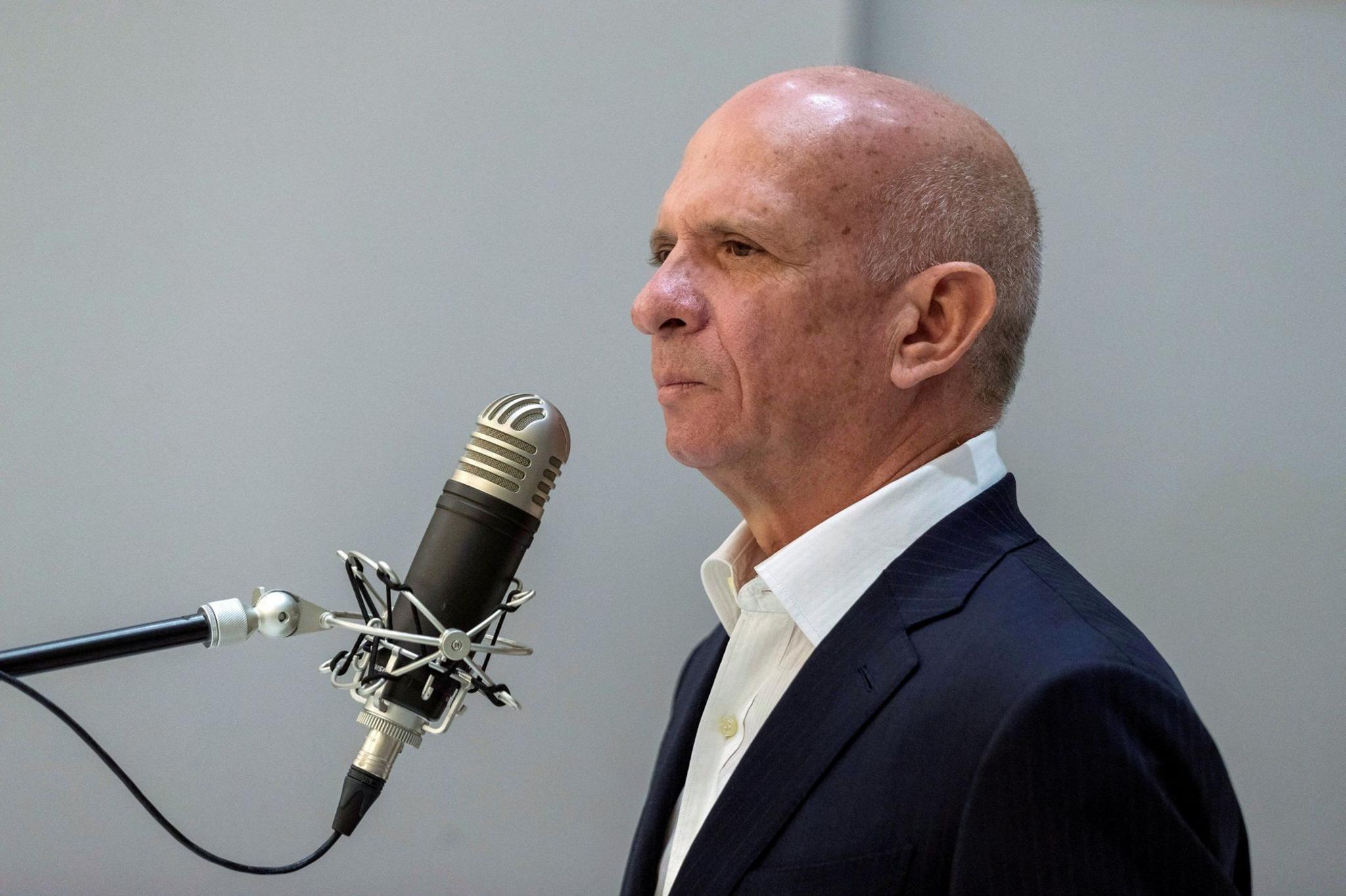
Former intelligence chief Hugo Carvajal pleaded guilty to drug trafficking and narco-terrorism charges in the US
The Cartel de los Soles, then, differs from other drug networks in that it lacks a formal structure, says Mr LaSusa.
It is not a group per se, he says, but rather "a system of widespread corruption".
He adds it has been fuelled by the economic crisis that has engulfed Venezuela under President Chávez's successor in office, Nicolás Maduro.
"The Maduro regime cannot offer security forces a decent salary and, to keep their loyalty, it allows them to accept bribes from drug traffickers," Mr LaSusa explains.
Mid- and lower-ranking officers who control Venezuela's key entry and exit points, such as airports, make up the Cartel de los Soles, Mr Benítez-Manau says, as they are in prime position to facilitate the flow of drugs.
But US officials are adamant that the tentacles of the Cartel de los Soles reach to the highest levels of the Maduro government, including the president himself.
In 2020, the US justice department accused Maduro and 14 others of conspiring with armed Colombian groups to ship cocaine to the United States.
Among the high-ranking officials named were Defence Minister Vladimir Padrino and the former head of Venezuela's Supreme Court, Maikel Moreno.
In the indictment, US prosecutors also alleged that since at least 1999, the Cartel de los Soles was led and administered by Maduro, Interior Minister Diosdado Cabello, former military intelligence chief Hugo Carvajal, and former General Clíver Alcalá.
They say information provided by former high-ranking Venezuelan military officials - including Carvajal and Alcalá - backs this up.
Leamsy Salazar, a former security chief for the late Hugo Chávez, provided US officials with information about the Cartel de los Soles as early as 2014.
Salazar, who had left Venezuela with the help of the DEA, said Interior Minister Cabello led the Cartel de los Soles.
Cabello denied the allegation, arguing it was part of an "international conspiracy".
But the accusations from former Venezuelan officials kept coming.
In 2020, Gen Alcalá handed himself in to DEA agents after falling out with the Maduro government, and pleaded guilty to providing support to the Farc and their cocaine-trafficking operations.
Earlier this year, former Venezuelan spymaster Carvajal - who also fled Venezuela after disagreeing with Maduro - pleaded guilty in a US court, as well, to charges of drug-trafficking and narco-terrorism.
"Over the years, he and other officials in the Cartel de los Soles used cocaine as a weapon, flooding New York and other US cities with poison," a federal prosecutor said about Carvajal, known as "El Pollo" (The Chicken), during the trial.
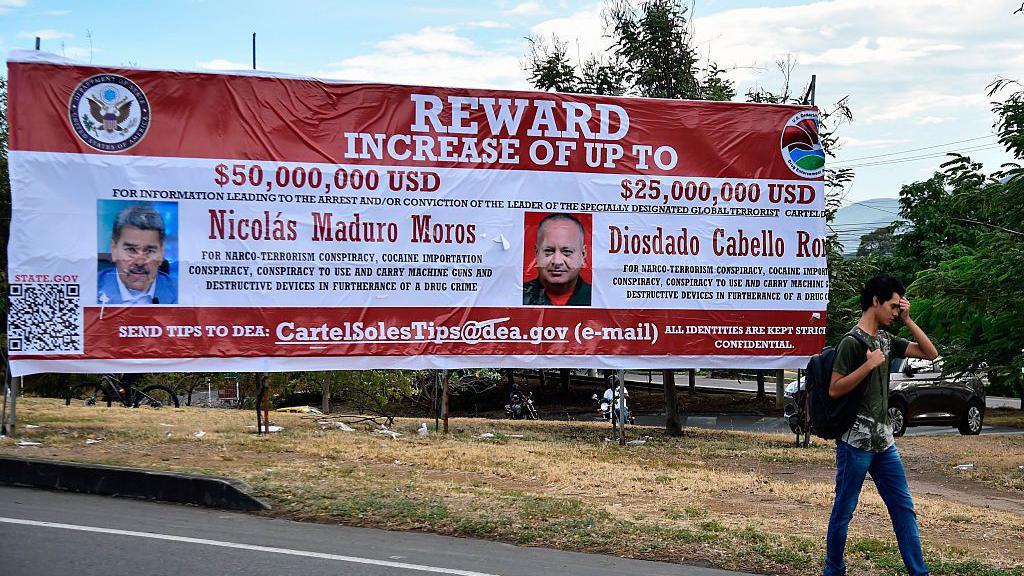
The US is also offering a reward for information leading to the arrest of President Maduro and Interior Minister Diosdado Cabello
Maduro and Interior Minister Cabello remain in Venezuela but the US recently upped its rewards for information leading to their capture to $50m (£38m) and $25m respectively.
The BBC contacted the Venezuelan government for comment on the US allegations but did not receive a response before publication.
However, the Maduro government has long dismissed the drug-trafficking accusations levelled against it as an attempt by the US to justify ousting Maduro.
In a statement released on Monday, the Venezuelan foreign ministry called the designation of the Cartel de los Soles as a terrorist organisation "a ridiculous fabrication".
It insisted the Cartel de los Soles was "non-existent" and that the move was a "vile lie to justify an illegitimate and illegal intervention against Venezuela".
Venezuela's Maduro 'ready to talk' as US ramps up pressure
- Published6 days ago
Warships, fighter jets and the CIA - what is Trump's endgame in Venezuela?
- Published24 October